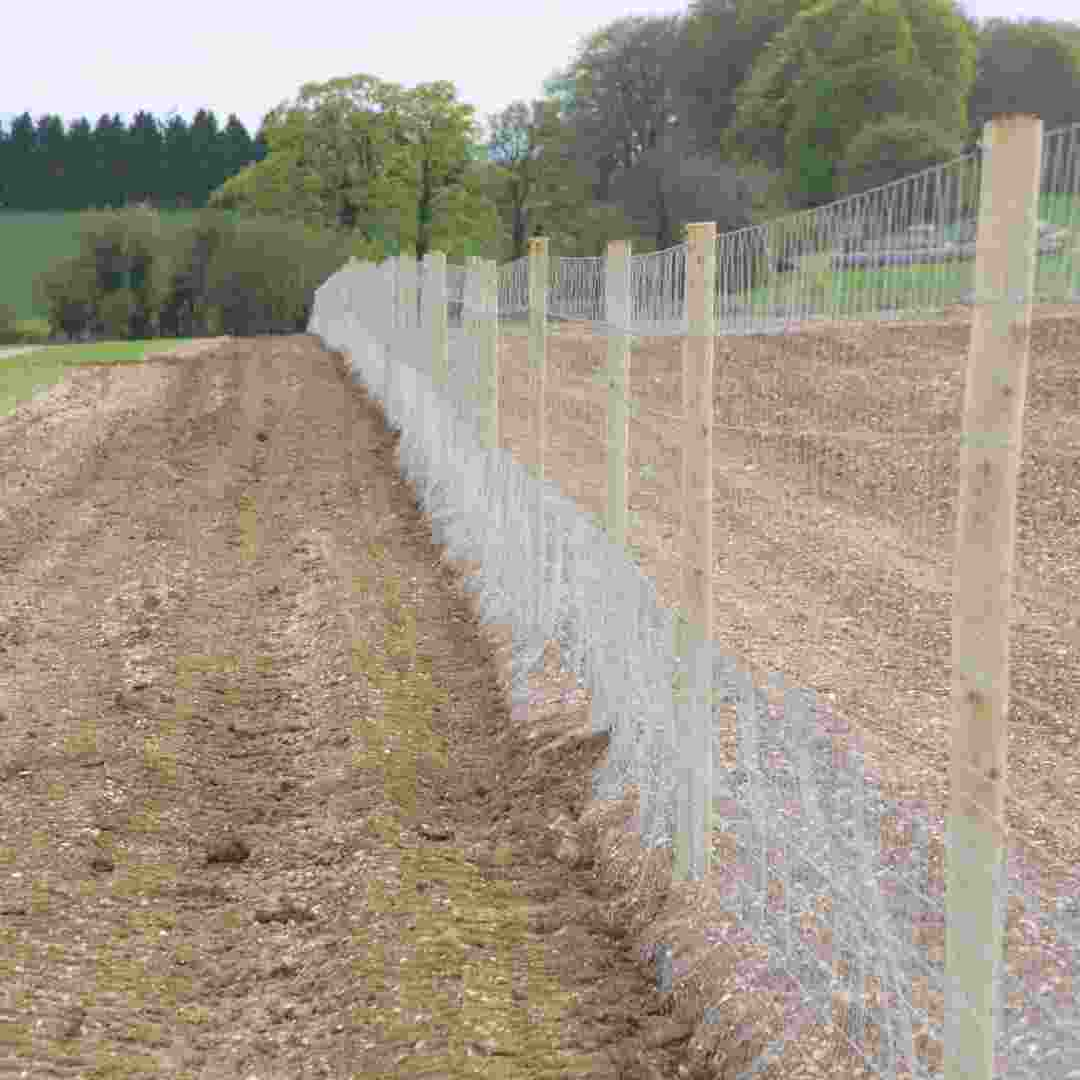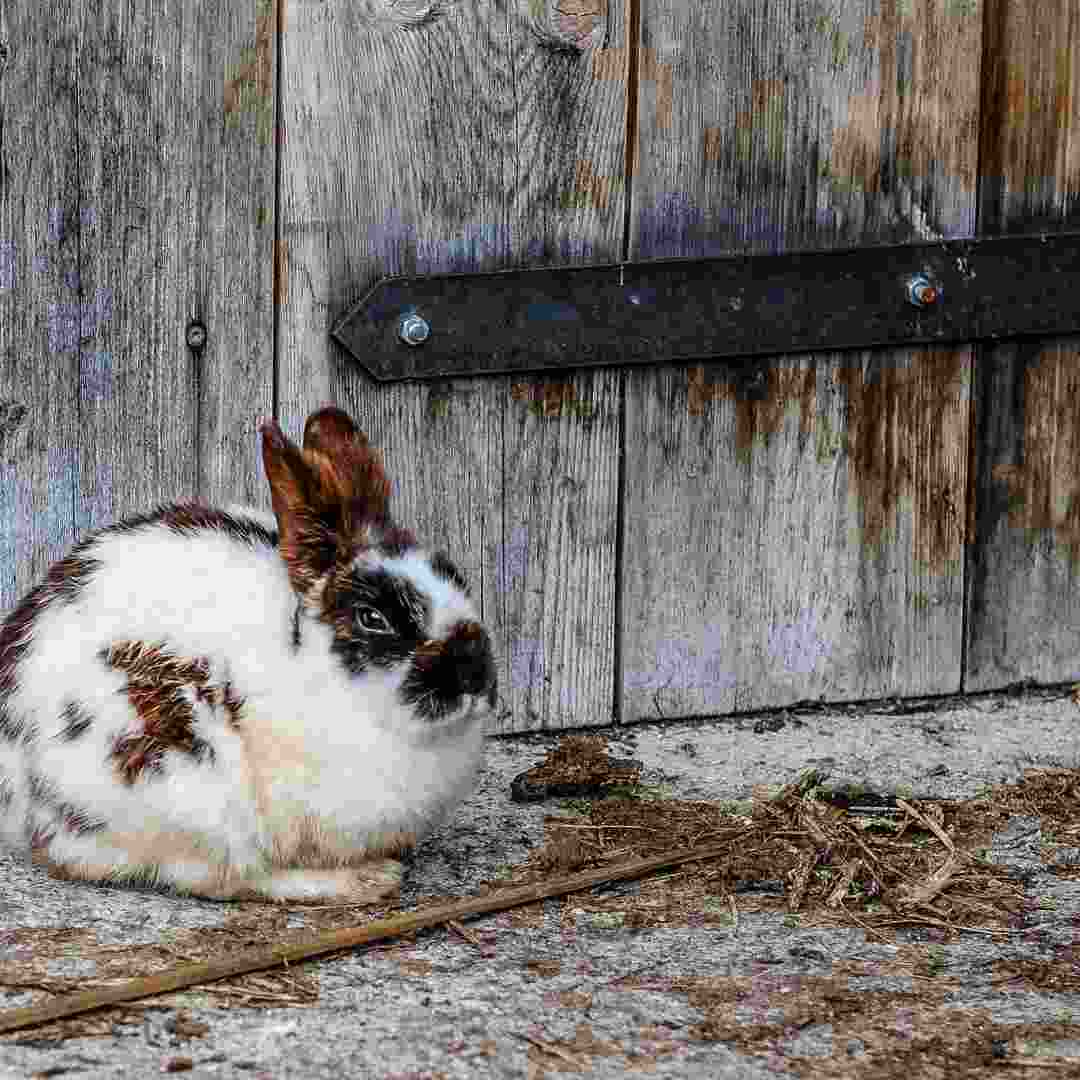Contents Table
Introduction
Choose the Right Fencing Material for Rabbit-Proofing Your Yard
Benefits of Rabbit-Proof Fence Installation
Rabbit-Proof Fence Installation Tips
Rabbit-Proof Fencing for Garden Protection
Best Fence Rabbit-Proofing Methods to Keep Rabbits Out of Yard
Q&A
Conclusion
Introduction
Rabbit proofing a fence protects your garden from rabbits. Rabbits consume vegetation and dig holes in lawns. Proofing your fence keeps rabbits out and protects your garden. This guide covers rabbit proofing fences with chicken wire, netting, and other materials. How to install and maintain these materials will also be discussed. You can protect your yard from rabbits with the correct materials and installation.
Choose the Right Fencing Material for Rabbit-Proofing Your Yard
Rabbit-proofing your yard requires the correct fencing material. Bunnies are small and agile, so use a robust, durable fencing material to keep them out. These recommendations can help you pick rabbit-proof fencing for your yard.
Consider fence height first. Rabbits can jump three feet, so consider a four-foot fence. This will prevent rabbits from jumping the fence.
Second, choose a sturdy fence material. Chain link fencing is ideal for rabbit-proofing yards because it's robust and hard to chew. Wood, vinyl, and metal can also be rabbit-proof, but they may need strengthening.
Third, weigh fencing material cost. Chain link fencing is the cheapest, while wood, vinyl, and metal are more expensive. The expense of fencing material should be weighed against rabbit damage.
Finally, consider fencing material aesthetics. You may want to use a visually appealing fencing material for your yard. Compared to wood, vinyl, and metal, chain link fencing may not be the most appealing fence option.
Follow these guidelines to choosing rabbit-proof fencing for your garden. You can safeguard your garden against rabbit damage with the correct fencing material.
Benefits of Rabbit-Proof Fence Installation
A rabbit-proof fence is a cost-effective and efficient solution to protect agricultural land against rabbits. This barrier keeps rabbits out while letting other animals in. Installing a rabbit-proof fence has many benefits:
1. Reduced Crop harm: Rabbits harm crops, lowering yields and raising farmer costs. Farmers can safeguard their crops from rabbits with a rabbit-proof fence.
2. Lower Pest Control Costs: Rabbits are hard to control, and insecticides are expensive. Farmers may save money on pest control and protect their crops by erecting a rabbit-proof fence.
3. Improved Soil Quality: Rabbits degrade soil, reducing agricultural yields and raising farmer costs. By erecting a rabbit-proof fence, farmers may safeguard their land from rabbit damage.
4. Reduced Disease Risk: Rabbits can spread diseases to humans and animals. Farmers can prevent rabbit-borne diseases by erecting a rabbit-proof fence.
In conclusion, a rabbit-proof fence is a cost-effective and effective solution to protect agricultural land from rabbit damage. Crop loss, pest control expenses, soil quality, and rabbit disease transfer to people and other animals can be reduced by this barrier.
Rabbit-Proof Fence Installation Tips
1. Pick the correct fence materials. Galvanised steel, aluminium, or vinyl-coated wire mesh are good rabbit-proof fences.
2. Plan your fence plan. Leave ample distance between the fence and surrounding buildings or trees.
3. Dig a fence trench. The trench should be 6 inches deep and wide enough for fence posts.
4. Put up the fence posts. Use robust pillars to support the fence.
5. Secure fence mesh to posts. Use galvanised wire or other strong materials to secure the fence.
6. Put up a gate. Access the area behind the fence.
7. Add a top rail. It will prevent rabbits from crossing the fence.
8. Add a bottom rail. It will prevent rabbits from tunnelling under the fence.
9. Add mesh skirt. It will prevent rabbits from getting through the fence.
10. Regularly inspect the barrier. Check for wear and tear and make repairs.
Rabbit-Proof Fencing for Garden Protection
Rabbits consume plants and ruin crops in gardens. Protect your garden from rabbits with rabbit-proof fencing. This barrier keeps rabbits out while letting you cultivate.
Installing rabbit-proof fencing starts with choosing the correct fence. Mesh fences over two feet are most effective. This fence prevents rabbits from jumping. To prevent rabbits from tunnelling under it, bury it at least six inches.
You must install the correct fence around your garden after choosing it. Dig a trench around your garden. Put the fence in the ditch and stake it. Ensure the fence is tight.
After installing the fence, add some features to make it more effective. Avoid rabbit burrowing by adding a wire mesh apron to the fence bottom. The top of the fence can be covered with wire mesh to prevent rabbits from hopping over.
Finally, attach some deterrents to the fence to boost its effectiveness. Hang strips of aluminium foil or plastic bags on the fence to inhibit noise and sight. Add some rabbit repellents to the fence to boost its effectiveness.
Follow these instructions to build a rabbit-proof fence to keep rabbits out of your garden. You may enjoy your garden without rabbits with the right fence and added features.
Best Fence Rabbit-Proofing Methods to Keep Rabbits Out of Yard
There are various ways to rabbit-proof your fence to keep rabbits out of your yard. How to keep rabbits out of your garden:
1. Fence Your Yard: A fence is the best technique to keep rabbits out. Choose a metal or vinyl fence at least two feet high that rabbits cannot nibble through. The barrier should be buried at least six inches to prevent rabbits from excavating.
2. Use Repellents: Repellents keep rabbits out of your yard. Choose an environmentally and animal-friendly repellent like natural predator urine or commercial repellent. Reapply repellant throughout your garden every few weeks.
3. grow Rabbit-Resistant Plants: Another approach to deter rabbits is to grow rabbit-resistant plants in your yard. Choose fragrant plants like lavender, rosemary, and marigolds or thorny plants like holly or barberry.
4. eliminate Attractants: Rabbits are drawn to food, therefore eliminate yard attractants. Clean up fallen fruit and veggies and mow the yard. Keep bird and pet food in sealed containers.
Steps to rabbit-proof your fence and keep rabbits out of your yard. You can have a rabbit-free garden with some effort.

Q&A
1. What rabbit-proof fence materials should I use?
A: Chicken wire, welded wire mesh, and hardware cloth are best for rabbit proofing fences.
2. How high should my rabbit fence be?
To keep rabbits out, your fence should be at least 2 feet tall.
3. How far should I bury the fence?
A: To prevent rabbits from tunnelling under the fence, bury it at least 6 inches.
4. Should I secure the fence with more materials?
A: Stakes, posts, and concrete are recommended for fence security.
5. How often should I inspect my fence for damage?
A: Check your fence for damage once a month to verify it's secure and rabbit-proof.
Conclusion
Fence rabbit proofing is essential to keeping rabbits out of your garden or yard. A rabbit-proof barrier can be made from chicken wire and chemical repellents. To maintain its effectiveness, the fence should be inspected and repaired often. Keep rabbits out of your garden and enjoy a beautiful, rabbit-free landscape with a little effort.
